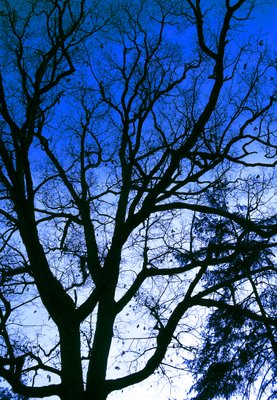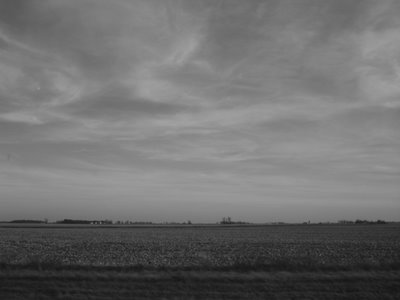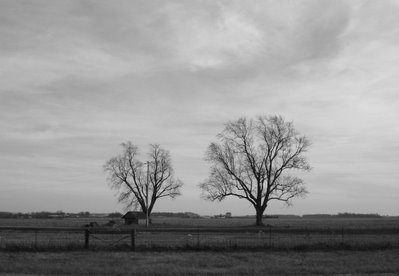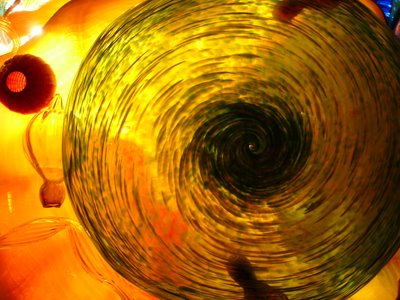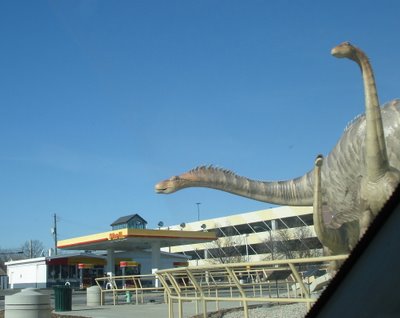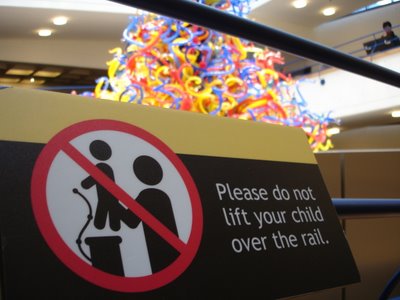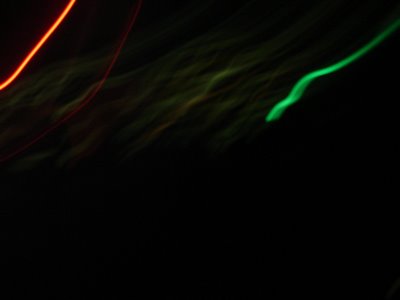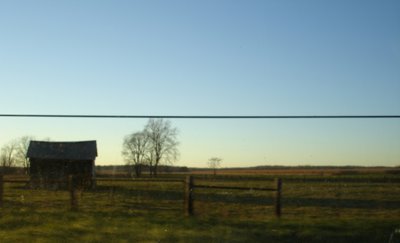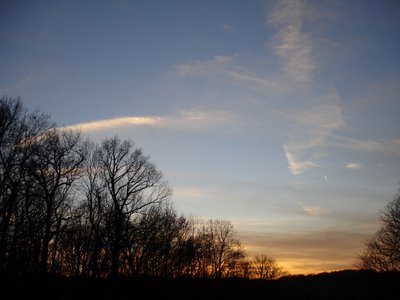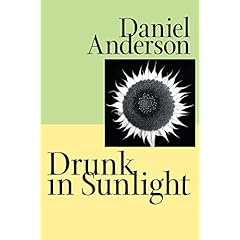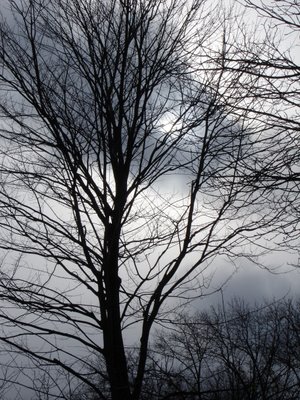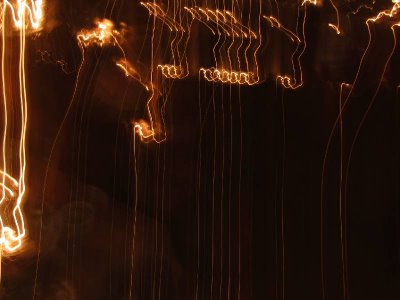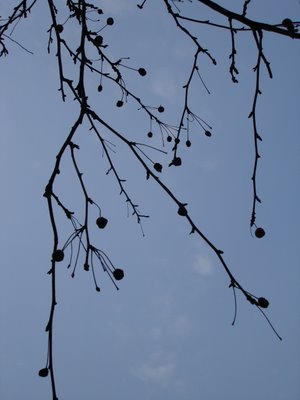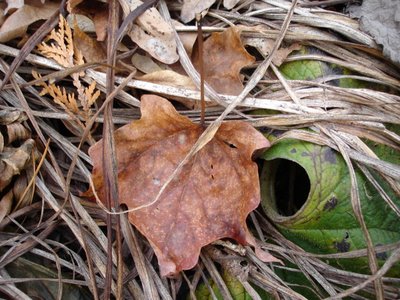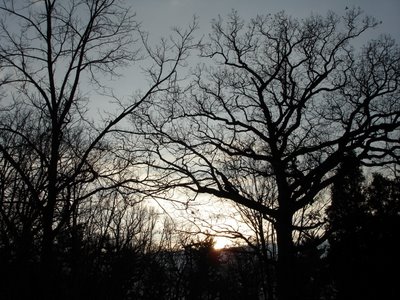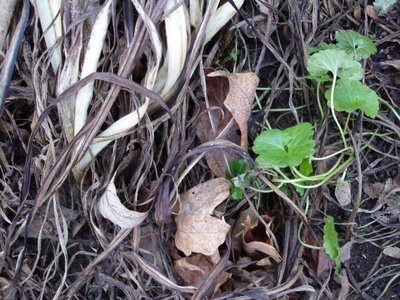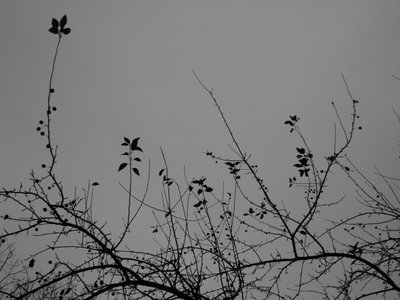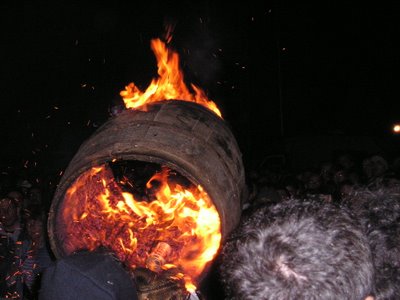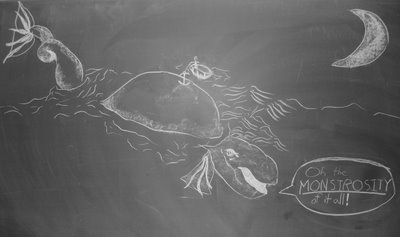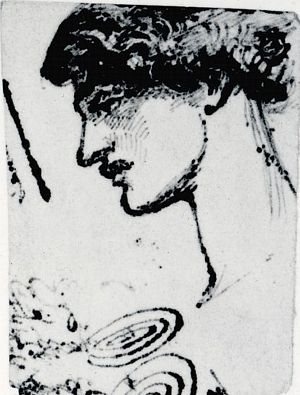Look at me and be color.

I'm borrowing my title from Tzara's "The Liontamer Remembers" (translated by Mary Ann Caws). Tonight I conjure color because the acid green sliding across the midwest's radar drained most of the color out of the day, pulled it right down the highway leading off the hill, along with all that coursing of water.
And I conjure in honor of Dan Beachy-Quick's visit today, which culminated in a splendid reading from Spell and Mulberry and some new work, too. It's beautiful work, all of it, and if you haven't read him yet, you should get his stuff. If you are a fan of Moby-Dick, Spell is the book for you. And then there was a dinner, what a dinner, full of spiderwebs and bird-catching and family stories and the artists whose works we'd be if our lives were works by artists. "I live in a Bosch," my friend said. I, shy, suggested that I'd like to believe I'm living in a Joseph Cornell. Our visitor chided me for hesitation. I explained that it seemed like too good a thing to claim for oneself. (To be that close to a paper moon, I thought to myself. To pirouette with those plastic lobsters. To jump from block of ice to block of ice, remembering Marie Taglioni's moonlit dance on the highway. To peer right in to those vials of sand. To float in one of those tiny infinities.)
At some point during the dinner, for some reason I can no longer remember, I brought up the fiction-writer Amanda Davis, who died suddenly in a plane crash in March 2003. I didn't know Amanda Davis (though my beloved Brooklynite's husband did), but I somehow heard about her death right after it happened--though, again, I can no longer remember why that was. In the aftermath of her death, I was touched deeply by the page of testimonials McSweeney's Internet Tendency posted, and which they've left up ever since, as I found when I got home and checked. It's a vast and deeply humane collection of memories and sorrows. The one that pulls at me most, always--as in, has since I read it on March 18 or so in 2003--is the one from her partner, Anthony Schneider. It's worth quoting in part, because it's just so lovely, and so heart-breaking, and so worth letting stand on its own as the end of tonight's writing:
Sometimes, when we were sitting around talking, or eating dinner, or in the middle of a party, or just walking down the street, you would pull me toward you, out of the blue, and say, with great urgency: I just love you, so much.
You had the softest skin and the sweetest smell of any person ever, and lying with you, wherever we were, felt like home.
You made the world a better place and me a better person.
You touched and loved and encouraged and listened and chided and cared.
There is a hole in my heart as big as the universe. And you are painted on it.
I just love you, so much.
